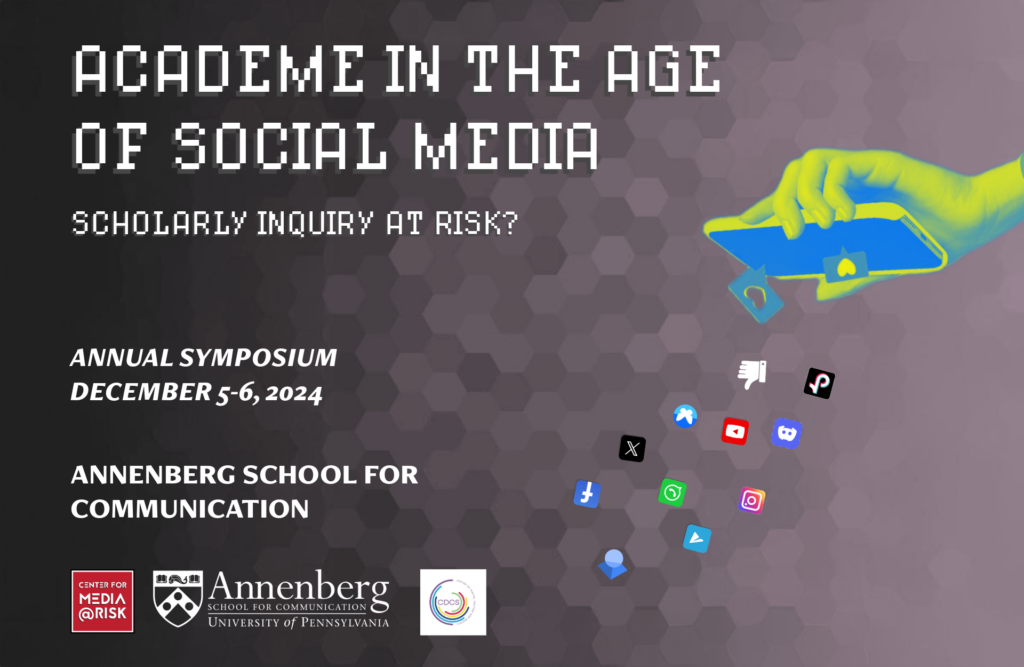
Social media and academe have had an entangled and ambivalent relationship. On the one hand, social media opens new horizons for scholarship and research. They can be powerful instruments of research and make it easier to bring scholarship and expertise to the public. On the other hand, the penetration of social media into everyday life and academic institutions exposes the academic environment to outside scrutiny and the influences of commercial and political interests, posing new challenges to the principles of academic freedom and the integrity of academic communities. In times of global crisis, the entangled relationship between social media and academia becomes even more complicated. This symposium brings together scholars and practitioners from around the world to analyze the multiple dimensions and consequences of what we call the social media-tization of academe. Such analyses are essential for understanding the ongoing transformations in the academy and their broader and longer-term ramifications.
Thursday, December 5
5:00-5:30pm | Pre-Reception
The Forum at Annenberg
5:30-5:45 | Welcome and Introductory Remarks
Room 109
- Sarah Banet-Weiser, Walter H. Annenberg Dean
5:45-7:15 | Keynote Addresses
- Todd Wolfson
- Rebekah Tromble
Moderated by Jenny Lee
7:15-8:30 | Reception
The Forum at Annenberg
Friday, December 6
9:30-10:00am | Breakfast
The Forum at Annenberg
10:00-10:15am | Introduction
Room 109
10:15-11:45am | Panel One: Past(s) and Present
Academia has long shaped and been shaped by the risks associated with visibility and surveillance. Where do we see these dynamics today? How have they evolved over time, and what historical precedents inform today’s challenges? With the ubiquity of social media, how do platforms intensify or mitigate the risks scholars face? Are there alternative models that resist co-optation and foster academic freedom and social justice?
- Sam Lavigne
- Jayson Harsin
- Nick Couldry
- Guobin Yang
Moderated by Anjali DasSarma
11:45-1:00pm | Lunch
The Plaza Lobby at Annenberg
1:00-2:30pm | Panel Two: Precarity and Power
ASC Room 109
Knowledge production in academia implies a fine line between opportunity and risk. How do social media complicate this balance by amplifying visibility while also introducing censorship and harassment? As digital platforms become more central to academic work, how do these dynamics shape the boundaries of academic freedom? What pressures and tensions do academics navigate to maintain a social media presence? In their use of social media, do academics face an “either/or” choice between visibility and the threat of harassment or invisibility and the threat of erasure?
- Brooke Erin Duffy
- Rachel Kuo
- Julia Sonnevend
Moderated by Natasha Williams
2:30-2:45pm | Refreshments
2:45-4:15pm | Panel Three: Liberation and Futures
ASC Room 109
Just as relationships of visibility and surveillance can illicit harm and inequity, they can also reclaim and give agency. Social media has the potential to amplify marginalized voices and open new possibilities for academia. How does social media create opportunities for agency, knowledge equity, and greater visibility of social causes? What role does social media play in fostering activism within academia? How might social media transform academia’s relationship with free speech, knowledge circulation and public-facing scholarship?
4:15-4:45pm | Closing Remarks
ASC Room 109
4.45-6.00pm | Closing Reception
The Forum at Annenberg
